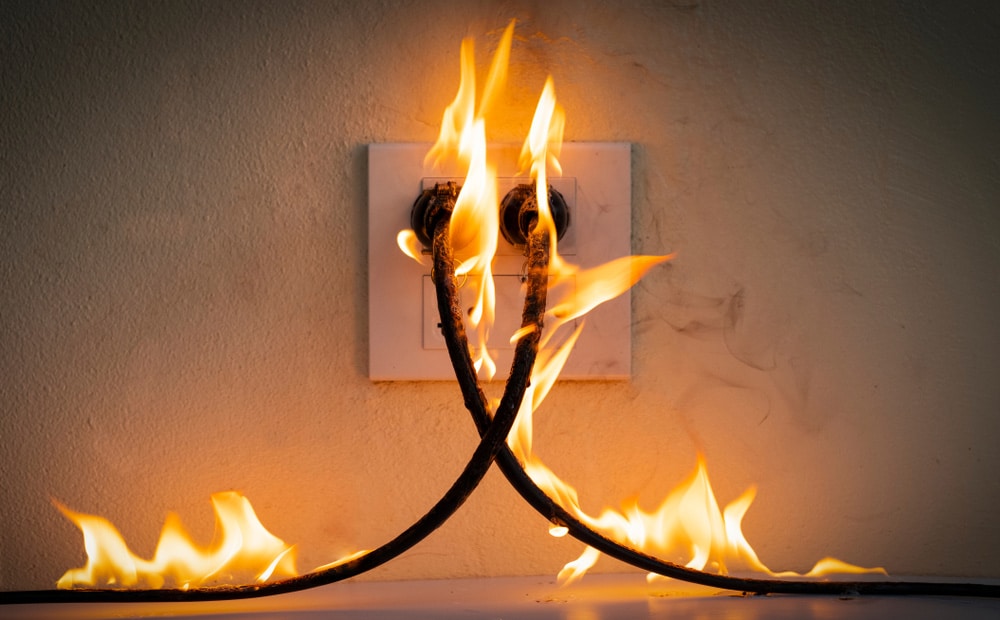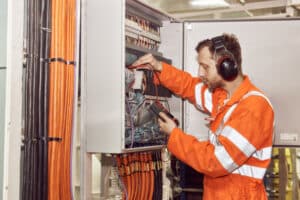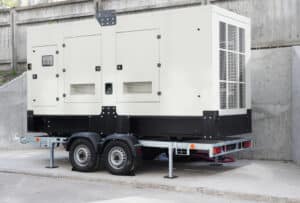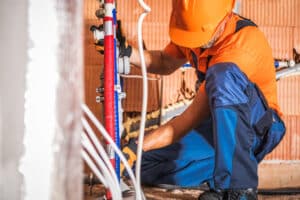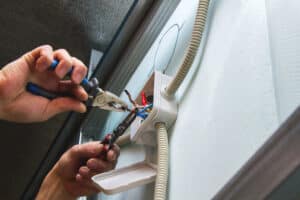A short circuit is an electrical fault where the current flows through an unintended, shorter pathway, rather than following the intended circuit. Short circuits not only pose risks to our safety but also have the potential to cause damage to our appliances and property. In this blog post, we explore common causes of short circuits and discuss practical ways to prevent them.
Understanding The Causes Of Short Circuits
Ever wondered what causes those short circuits that disrupt your electrical system? Here are some common culprits:
- Faulty Wiring: Poorly installed or outdated wiring is one of the primary causes of short circuits. Shoddy installation, outdated wires or wires that have been frayed by nibbling rodents are common causes and can pose serious electrical hazards.
- Overloading Circuits: When we plug in too many devices to a single socket or circuit, we’re pushing the circuit to its limit. This can lead to overheating and a potential short circuit. Remember, it’s important to distribute your electrical load evenly, so avoid relying on multiple extension leads or adapters.
- Damaged Appliances or Equipment: Faulty or damaged appliances and equipment can also cause short circuits. Worn-out cords, exposed wires or malfunctioning components increase the risk of electrical faults and potential short circuits.
Common Signs Of A Short Circuit
Now that we’re familiar with the causes of short circuits, let’s discuss the tell-tale signs which indicate short circuiting. Here are a few red flags to keep an eye out for:
- Frequent Circuit Breaker Tripping: Is your circuit breaker flicking off more often than usual? This could be a sign of a short circuit. The circuit breaker is designed to protect us by shutting off power when it detects an overload or a short circuit, preventing potential hazards.
- Flickering Lights: If your lights have developed a habit of flickering or dimming with no apparent reason, it’s time to pay attention. This symptom may indicate a short circuit in your electrical system and should not be taken lightly.
- Burning Smell or Discoloured Outlets: If you catch a whiff of a burning smell or notice discolouration around your electrical outlets, it’s time to investigate. These signs can be indications of overheating caused by a short circuit. Don’t ignore them – act promptly to prevent further damage.
Steps To Prevent Short Circuits In Your Electrical System
Want to stop short circuits from damaging your home or business? Here are some practical steps to prevent short circuits and keep your electrical systems running smoothly:
- Regular Electrical Inspections: Schedule regular inspections by a qualified electrician to assess the condition of your electrical system. An electrician can identify hazards such as faulty wiring, overloaded circuits or damaged components and make the necessary repairs or upgrades.
- Maintain Appliances and Equipment: Keep an eye on your appliances and equipment. Routinely inspect them for any signs of damage, such as worn-out cords or exposed wires. If you spot any issues, repair or replace them promptly to minimise the risk of a short circuit.
- Upgrade Outdated Wiring: If your electrical system contains outdated wiring, consider upgrading it to meet current safety standards. Consult with a licensed electrician who can assess the condition of your wiring and provide recommendations for necessary upgrades.
- Educate and Practise Electrical Safety: Educate your family members or colleagues about electrical safety practices. Emphasise the importance of avoiding water near electrical outlets, not overloading circuits and reporting any unusual signs or smells.
Jayden Enterprises – Trusted Property Maintenance In Mackay
As a leading licensed property maintenance company, we specialise in servicing commercial properties across the Mackay region. Our experienced electricians can conduct thorough inspections, perform any necessary repairs and provide expert advice on preventing short circuits and maintaining electrical safety. To find out more, or to book an inspection, call us today!





